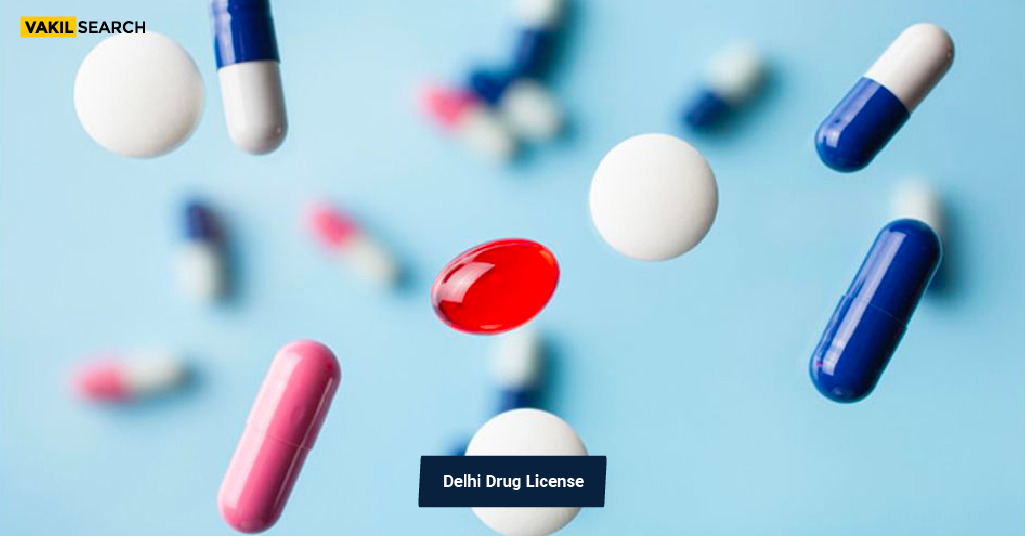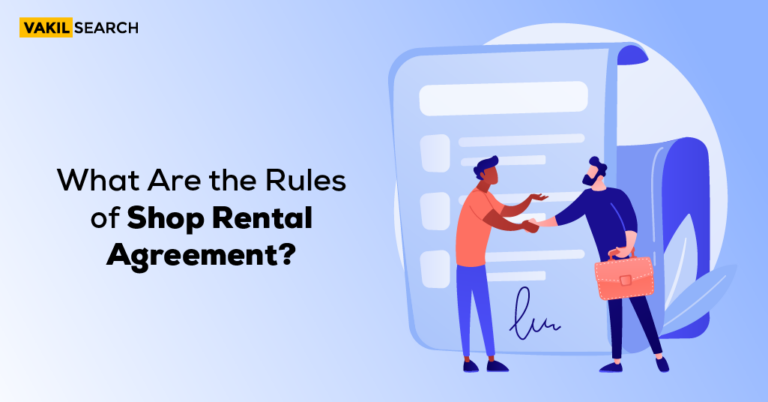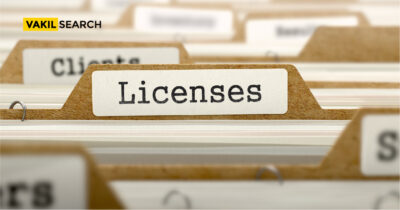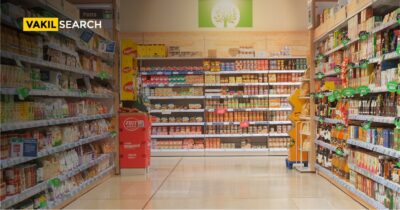Thinking of starting a pharmaceutical or cosmetic business in Delhi? Learn about the required documents, fees, and online payment process for Drug Licenses.
The Drugs Control Department actively regulates the manufacturing and sales of drugs and cosmetics. Various drug laws established by the government empower the State Drug Controller to manage the licensing process for both manufacturing and sales premises of drugs and cosmetics. This article examines in detail the documents needed, fees, and the procedure for online payment to acquire a Delhi Drug License.
Drugs and Cosmetics Act, 1940
The Drugs and Cosmetics Act, 1940 is an Act of the Parliament of India that regulates the import, manufacture, and distribution of drugs and cosmetics in India. The primary objective of the Act is to ensure that the drugs and cosmetics sold in India are safe, effective, and conform to state quality standards.
The Act has been amended several times since its enactment, most recently in 2020. The latest amendments aim to strengthen the regulatory framework for drugs and cosmetics in India, and to make it easier for patients to access affordable and quality medicines.
The Drugs and Cosmetics Act is administered by the Central Drugs Standard Control Organization (CDSCO), which is a part of the Ministry of Health and Family Welfare. The CDSCO is responsible for setting quality standards for drugs and cosmetics, and for monitoring the activities of drug and cosmetic manufacturers and distributors.
The Act has been criticized for being too complex and for being difficult to enforce. However, it has also been praised for its role in improving the quality of drugs and cosmetics in India.
Here are some of the key provisions of the Drugs and Cosmetics Act, 1940
- The Act defines what constitutes a drug and a cosmetic.
- The Act sets out the requirements for the import, manufacture, and distribution of drugs and cosmetics.
- The Act prohibits the import, manufacture, and distribution of adulterated and misbranded drugs and cosmetics.
- The Act gives the CDSCO the power to inspect drug and cosmetic manufacturing facilities and to take action against violators of the Act.
- The Act provides for the establishment of a Drugs Consultative Committee to advise the government on matters relating to drugs and cosmetics.
The Drugs and Cosmetics Act, 1940 is an important piece of legislation that has played a significant role in ensuring the safety and quality of drugs and cosmetics in India. However, the Act is not perfect and it is important to continue to review and update it to ensure that it remains effective in the face of new challenges.
Who issues the License to start a Drug Store in Delhi?
In Delhi, the Delhi Drug Control Department issues the license to start a drug store. It falls under the purview of the Drugs and Cosmetics Act, 1940, and ensures that the drugs sold in the city are safe, effective, and meet quality standards.
Here’s a breakdown of the licensing process
- Types of licenses: Depending on the range of drugs you plan to sell, you’ll need to apply for the specific license category, such as retail sale of drugs and cosmetics, wholesale drug license, etc.
- Application process: You can apply online through the Drugs Control Department website (https://drugs.delhi.gov.in/) or in person at the designated office with all the required documents.
- Documents required: This includes details about the applicant, premises, qualified pharmacist, and type of license needed. You can find a complete list on the website or consult with a professional.
- Fees: Different license categories have specific fees associated with them.
Once your application and documents are complete, the department will inspect your premises and verify your qualifications. Upon approval, you’ll receive the official license to operate your drug store in Delhi.
Types of Drug Licenses
| S.N | Category | Sale Type | Application Form | License Form |
| 1. | Drugs other than those specified in Schedule C&C (1)&X | Whole Sale | 19 | 20-B |
| Retail Sale | 19 | 20 | ||
| Restricted (General Store) | 19-A | 20-A | ||
| 2. | Drugs specified in Schedule C&C (1) but excluding those specified in Schedule ‘X’ | Whole Sale | 19 | 21-B |
| Retail Sale | 19 | 21 | ||
| Restricted (General Store) | 19-A | 21-A | ||
| 3. | Drugs specified in Schedule ‘X’ | Whole Sale | 19-C | 20-G |
| Retail Sale | 19-C | 20-F | ||
| 4. | Sale of Drugs from motor vehicles | Whole Sale (1) | 19-AA | 20-BB |
| Whole Sale (2) | 19-AA | 21-BB R-62- D R | ||
| 5. | Homoeopathic Medicines | Whole Sale | 19-B | 20-D |
| Retail Sale | 19-B | 20-C |
Documents Required Drug Sale License
Documents required for Fresh Application of Retail/Wholesale license
- System generated application form for the relevant drug sale category (19/19A/19B/19C, as applicable).
- Site plan and key plan of the premise.
- Constitution of the firm:
- For companies: Memorandum and articles of association, and copy of resolution passed.
- For partnership firms: Partnership deed, duly attested by Notary Public.
- For trusts/societies: Trust deed.
- Photo ID proof of proprietor/partner/director of the firm.
- Affidavit regarding non-conviction of proprietor/partner/director and the firm under the Drugs & Cosmetics Act, 1940.
- Affidavit regarding compliance with MPD 2021, if the premises are located on DDA residential flat/plot/building.
- Online fee deposit receipts.
- System-generated affidavit from the registered pharmacist/competent person.
For Retail Sale Registered Pharmacist
- Proof of qualification (final degree certificate/provisional certificate with mark sheets).
- Registration of Delhi Pharmacy Council.
- Appointment letter and bio-data.
For Wholesale License Competent Person
- Proof of qualification (final degree certificate/provisional certificate with mark sheets).
- Experience certificate.
- Appointment letter and bio-data.
Premises
If Owned
-
- Registered Sale Deed/Regd. GPA/Conveyance Deed in the name of owner or Unregistered Sale Deed/unregistered GPA supported with Electricity Bill/Water Bill/property tax receipt.
If Rented
-
- Rent receipt, registered rent agreement, unregistered rent agreement along with ownership documents of the property owner.
*In the case of villages, Khasra Khatauni documents will be considered.
Documents required for Application of additional Retail/Wholesale license
- System generated application form for the relevant drug sale category (19/19A/19B/19C, as applicable).
- Affidavit regarding non-conviction of proprietor/partner/director and the firm under Drugs & Cosmetics Act, 1940.
- For additional Retail Sale license
- Proof of qualification of the registered pharmacist.
- Registration of Delhi Pharmacy Council.
- Appointment letter and bio-data.
- System Generated Affidavit.
- Online fee deposit receipts.
Documents required for Application of renewal of Retail/Wholesale license:
- System generated application form for the relevant drug sale category (19/19A/19B/19C, as applicable).
- Conversion charge receipt issued by MCD with relevant documents supporting commercial use as per MPD 2021 (e.g., copy showing the name of notified commercial/mixed-use road/street).
- Online fee deposit receipts.
Documents required for Change in Registered Pharmacist
- Proof of qualification of the registered pharmacist.
- Registration of Delhi Pharmacy Council.
- Appointment letter and bio-data.
- System Generated Affidavit.
Documents required for Change in Competent Person
- Proof of qualification (final degree certificate/provisional certificate with mark sheets).
- Experience certificate.
- Appointment letter and bio-data.
- Affidavit by Competent Person (System Generated).
Documents required for Addition/Reduction in premises
- Revised documents for premises
- If Owned: Registered Sale Deed/Registered GPA or Unregistered Sale Deed/unregistered GPA supported with Electricity Bill/Water Bill/property tax receipt.
- If Rented: Rent receipt and either Regd. Rent Agreement or Unregistered Rent Agreement along with ownership documents of the landlord as stated above.
- Revised Site Plan
How to apply for a Drug license in Delhi?
- Get in touch with our Vakilsearch expert
- Submit all the requisite documents
- We will file the application for drug license in Delhi on your behalf
Requisites for Drugs License for manufacturing of drugs
Obtaining a drug manufacturing license is a rigorous process involving various requisites to ensure the highest standards of safety and quality. Here’s a general overview of the key requirements, keeping in mind the safety and ethical guidelines you mentioned:
-
Legal and Regulatory Compliance
- Company Registration: Your business must be legally registered as a company or partnership firm.
- Drugs and Cosmetics Act: Thorough understanding and adherence to the Drugs and Cosmetics Act of your country/region is crucial.
- Specific Licenses: Different licenses may be required for manufacturing different categories of drugs. Research the specific licenses needed for your products.
-
Facility Requirements
- Location and Size: The manufacturing facility must be located in an appropriate zone as per regulations and be of adequate size to accommodate operations.
- Infrastructure and Equipment: The facility must have proper infrastructure, including dedicated production areas, quality control labs, storage spaces, and waste disposal systems. It should also be equipped with necessary machinery and instruments for manufacturing the specific drugs.
- Safety and Environmental Standards: The facility must comply with all safety regulations and environmental standards for handling chemicals, hazardous materials, and waste disposal.
-
Personnel and Expertise
- Qualified Personnel: You must have a team of qualified personnel, including experienced chemists, pharmacists, microbiologists, and quality control experts.
- Technical Staff: Ensure all technical staff involved in manufacturing processes are adequately trained and possess the necessary skills and knowledge.
-
Quality Control and Assurance
- Robust Systems: Implement robust quality control and assurance systems to ensure the consistent quality, safety, and efficacy of your drugs.
- Standard Operating Procedures (SOPs): Develop and implement SOPs for all manufacturing processes, testing procedures, and quality control checks.
- Documentation: Maintain detailed documentation of all manufacturing processes, test results, and quality control measures.
-
Regulatory Inspections
- Be prepared for regular inspections: Regulatory authorities will conduct inspections to ensure your facility and operations comply with the required standards.
Drug license Validity and Renewal
The validity and renewal process for drug licenses can vary depending on the specific type of license and the governing regulations in your region. However, here’s a general overview:
Validity
- Most drug licenses are valid for a period of five years from the date of issue. This applies to licenses for manufacturing, wholesale, retail, import, and export of drugs.
- Some exceptions may exist for specific types of licenses or categories of drugs. For example, licenses for narcotics or blood banks might have shorter validity periods due to stricter regulations.
Renewal
- It’s crucial to renew your drug license before it expires to avoid any disruption in your operations and potential penalties.
- The renewal process typically involves submitting an application along with required documents and fees to the relevant regulatory authority. The specific requirements and deadlines may vary depending on your location and the type of license.
- Common documents required for renewal may include
- Copy of the existing license
- Updated company registration documents
- Proof of payment of renewal fees
- Updated qualifications and experience of key personnel
- Inspection reports from relevant authorities
- The regulatory authority will review your application and may also conduct inspections of your facility to ensure continued compliance with the regulations.
- Once approved, you will receive a renewed license for another five years.
FAQs on Delhi Drug License
How can I get a drug license in Delhi?
The process for obtaining a drug license in Delhi depends on the type of license you need (manufacturing, wholesale, retail, etc.). Here's a general outline:
Identify your required license: Determine the specific type of license you need based on your business activities.
Meet company registration requirements: Ensure your business is legally registered.
Follow the Drugs and Cosmetics Act: Familiarize yourself with the relevant regulations in the Act.
Apply for the license: Access the application form and required documents list on the Delhi Drug Control Department website (https://drugs.delhi.gov.in/).
Submit the application: Submit the completed application form along with all necessary documents and fees to the Drugs Control Department.
Inspections and approvals: Expect inspections from the department to ensure your facility and operations comply with regulations. After verification, you will receive your license if approved.
What is the cost of a drug license in Delhi?
The cost of a drug license in Delhi varies depending on the type of license and the size of your business. Fees range from a few thousand rupees to lakhs, depending on factors like area of the premises, categories of drugs, and inspection charges. The Drugs Control Department website provides fee details for different licenses.
What is the cost of a pharmacy license in Delhi?
The cost of a pharmacy license in Delhi can range from around Rs. 20,000 to Rs. 50,000, depending on factors like the size of the pharmacy, location, and required permissions. Consult the specific fees for retail licenses on the Drugs Control Department website.
What are the different types of drug licenses in Delhi?
In Delhi, you can obtain various drug licenses catering to different needs, including:
Retail License: Allows selling drugs directly to consumers (pharmacies).
Wholesale License: Permits purchase of drugs in bulk and selling them to authorized entities.
Manufacturing License: Enables production of various categories of drugs.
Import License: Authorizes importing pharmaceutical products.
Export License: Allows exporting drugs to other countries.
Loan License: Permits contract manufacturing for another licensed manufacturer.
Blood Bank License: Enables collection, storage, and processing of blood products.
Narcotics License: Allows handling and distribution of controlled substances.
What is the validity period of a drug license in Delhi?
Most drug licenses in Delhi are valid for five years from the date of issue. Exceptions might exist for specific types of licenses or drugs.
What are the penalties for operating without a drug license in Delhi?
Operating without a valid drug license in Delhi is a serious offense and can attract:
Heavy fines: Penalties can range from thousands to lakhs of rupees depending on the violation.
Seizure of drugs and equipment: Authorities may seize your entire inventory and equipment.
Business closure: Your business might face temporary or permanent closure.
Criminal charges: In severe cases, legal action and imprisonment are possible.
Also, Read:










